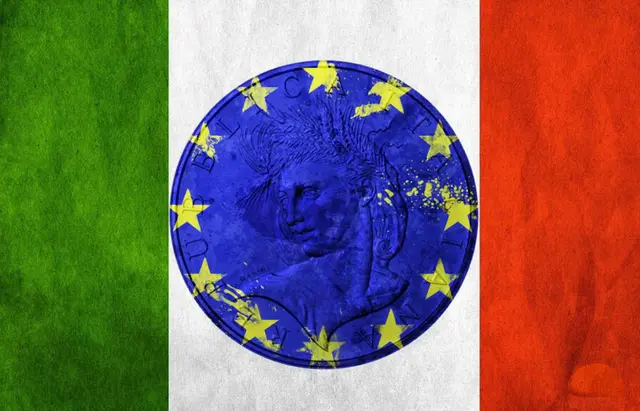Days after Italian Prime Minister Matteo Renzi declared he wanted his country to join Germany and France as a central decision maker in the European Union (EU), his remarks are resonating with the public even if it is not clear if they will have the desired impact among EU policy players.
In a series of interviews with Italian and foreign newspapers, Renzi, who will celebrate two years as prime minister later this month, said the country with the third largest economy in the eurozone deserves to play a bigger role in European affairs.
"I am the leader of a great country," Renzi said. "It is not right that when a decision if made, Angela Merkel calls Francois Hollande and Jean-Claude Juncker and then I find out what happened by reading the newspapers."
Merkel is Germany's chancellor, Hollande is president of France, and Juncker is the president of the European Commission, or the EU's executive body.
Renzi and Merkel are set to meet Friday in Berlin, where the subject is expected to come up.
Government officials and advocates say Renzi is trying to assure Italy is treated with the appropriate respect as a member of the Group of Eight economies, a founding member of the EU and home to some 60 million EU citizens.
But there is speculation in the Italian media that Renzi's remarks were aimed at increasing his leverage with Merkel ahead of their meeting, or in order to gain more support for Renzi's calls for the EU to allow more flexibility for the national budgets of member states.
There is also the possibility that Renzi is trying to shore up his domestic approval levels as he faces pressure from populist opposition parties as his ambitious reform agenda has by some measures failed to deliver on the promise of robust economic growth and falling unemployment levels.
"I don't know if the prime minister's intention was to increase support among the general public, but if it was it is working," Maria Rossi, co-director of the polling firm Opinioni, said in an interview.
Arianna Montanari, an expert on sociology and politics at Rome' s Sapienza University, said that for Italy to take a permanent place as one of Europe's leaders it must combat a bad reputation created from years of high debt, slow economic growth, political instability, and scores of examples where it was an unreliable partner on a European level.
"Renzi is working hard to change this," Montanari told Xinhua. "I think his reforms are seen as positive steps and he is making changes. But an image takes time to change."
Antonio Villafranca, president of the Istituto per gli Studi di Politica Internazionale (The Institute for International Political Studies), disagreed. He said Italy has already made the necessary changes.
"The economy is finally growing [Italy's economy expanded in 2015, for the first time since 2008] and with the Renzi government there is political stability," Villafranca said in an interview.
"At this point the problem is just a matter of perception," the expert added. Enditem
 简体中文
简体中文

